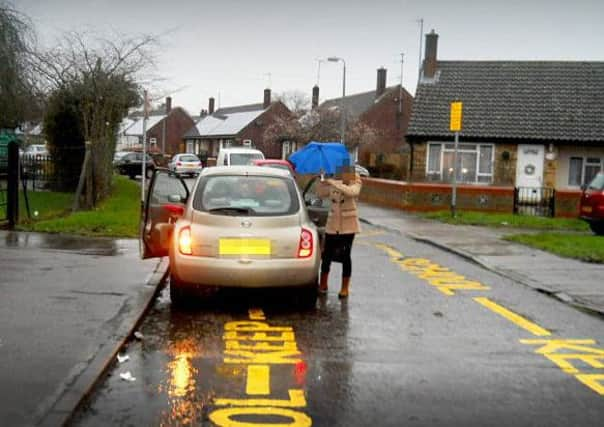Parking crackdown '˜flying squad' to visit schools in Lancaster and Morecambe


The plan was revealed at a Lancashire County Council meeting where councillors were also told which parking perils could – and could not – be tackled be the authority’s attendants.
And members heard that a “flying squad” is now visiting problem parking areas where restrictions might previously have gone unenforced.
Advertisement
Hide AdAdvertisement
Hide AdA statement from the local primary headteacher’s cluster said: “We acknowledge the difficulties that many parents and carers face in the rush of school drop off and pick ups, but our priority is the safety of our children on their journey to and from school.
“This exercise is therefore one that we hope will be successful in keeping our entry and exit points accessible and safe to all of our school communities.”
Peter Bell, the county’s highway regulation enforcement manager, said his priority was “keeping the roads clear”, not issuing tickets.
“If there’s somebody in the car, the first thing we will do is try to move them on,” he said.
Advertisement
Hide AdAdvertisement
Hide Ad“But if they refuse to move, we have no choice but to issue them with a ticket.”
Schools were asked whether they would like wardens to visit to prevent parking on zigzag lines outside their gates – but fewer than a third said they would.
Those schools were targeted between January and July this year, when 76 tickets were issued. Now, the council plans to visit all schools with parking restrictions in the next twelve months. But it is not necessarily proving a popular policy.
Mr Bell told councillors: “At one of the schools we visited, where parents were parked on zigzags, what did we get? The teachers coming out and saying to us, ‘Why are you picking on our parents?’. It’s a difficult situation.”
Advertisement
Hide AdAdvertisement
Hide AdOther parking restrictions in the vicinity of zigzag lines will also be enforced.
In the first two weeks of the new scheme, 26 vehicles have been moved on.
And Mr Bell appealed for feedback from schools, so that those with the biggest problem could get repeat visits later in the year.
He admitted the council had “got in a rut” by patrolling the same areas day in, day out, which had allowed hotspots to develop elsewhere.
Advertisement
Hide AdAdvertisement
Hide AdHe added: “We visit, people see us and compliance then goes up. It’s not about being there once a day, but being visible enough to actually educate people that, at any time, we could be there.”
In August, 152 targeted visits generated 37 parking tickets – and 116 vehicles were moved on.
There is no national policy on pavement parking, although there are rules in London. A government consultation is now asking councils whether a similar scheme should be rolled out across the country.
If pavement parking causes an obstruction, however, it is an offence which can be enforced by the police – but only if they see someone being obstructed at the time.
Advertisement
Hide AdAdvertisement
Hide AdMr Bell warned that pavement parking in Lancashire might be “a necessary evil”.
“There are lots of terrace streets – if there was a pavement parking ban, you would halve the capacity of every street,” he said.